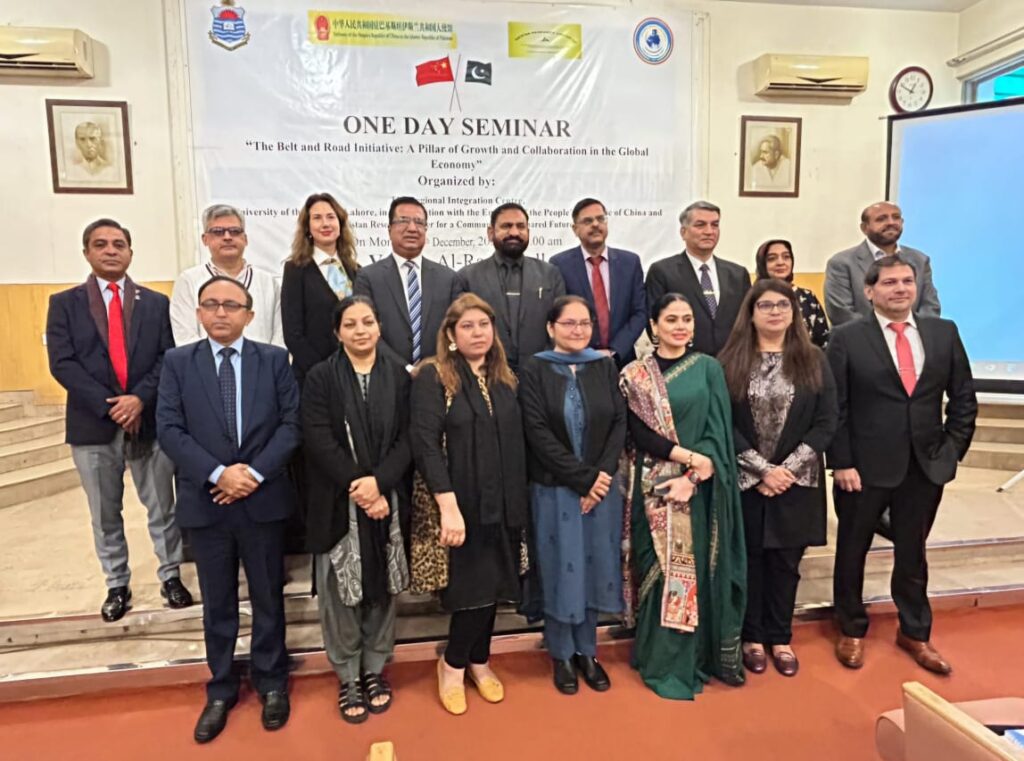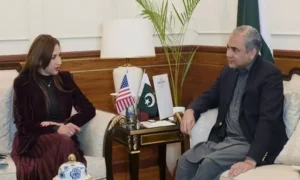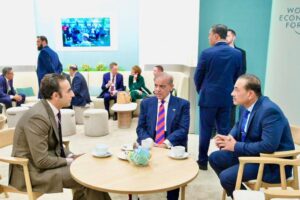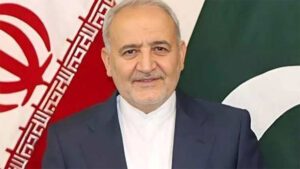One-Day Seminar on BRI Held at Punjab University Organized by RIC in Collaboration with Chinese Embassy Islamabad and PRCCSF

Lahore, The Gulf Observer: On 16th December 2024, One-Day Seminar on “The Belt & Road Initiative: A Pillar of Growth and Collaboration in the Global Economy” Jointly Organized by Regional Integration Center (RIC), University of the Punjab, Lahore in collaboration with Embassy of the People’s Republic of China to Pakistan and Pakistan Research Center for a Community with Shared Future (PRCCSF), Islamabad
The seminar commenced with a warm welcome from Dr. Fouzia Hadi Ali, Director Regional Integration Centre, University of the Punjab, Lahore. In her opening address, she expressed her heartfelt gratitude to the distinguished guests and experts from China, acknowledging their crucial role in facilitating discussions that foster international collaboration. Dr. Hadi Ali emphasized that dialogues like these are essential for strengthening ties across borders and enhancing mutual understanding in an increasingly interconnected world.
Mr. Khalid Taimur Akram, Executive Director, Pakistan Research Center for a Community with Shared Future (PRCCSF), Islamabad gave a welcome speech where he underscored the Belt & Road Initiative as a critical pillar for growth and collaboration within the global economy. He articulated that the BRI not only fosters economic development but also enhances interconnectedness among nations, promoting trade, investment, and cross-cultural understanding. His insights set the stage for deeper discussions throughout the seminar.
Professor Li Huailiang, Dean of the Institute for a Community with Shared Future, Communication University of China (CUC), Beijing, China, provided an in-depth examination of the BRI’s implications. He presented valuable insights into its role in fostering regional integration and enhancing international cooperation. Professor Li emphasized how the initiative serves to bridge economic gaps, promotes sustainable development, and strengthens diplomatic ties between participating countries.
Prof. Dr. Iram Khalid, Dean Faculty of Behavioral & Social Sciences/Chairperson, Department of Political Science, University of the Punjab, Lahore delivered a compelling discourse on the strategic infrastructure projects associated with the BRI and their significant impact on global trade routes. She highlighted the importance of these projects in reshaping trade dynamics and fostering economic corridors.
In a thought-provoking presentation, Prof. Dr. Sajid Rashid Ahmad, Dean of GeoSciences at the College of Earth and Environmental Sciences at the University of the Punjab, Lahore addressed China’s efforts to promote a clean and green environment within the ambit of the BRI. His remarks focused on sustainable development practices that aim to balance economic growth with environmental stewardship.
Dr. Talat Shabbir, Director, China-Pakistan Study Centre, Institute of Strategic Studies, Islamabad, discussed the transformative effects of the BRI on regional and global order. He articulated how the initiative reshapes existing power dynamics and poses new challenges for policymakers in adapting to a rapidly changing geopolitical landscape.
Ms. Ornela Ramasauskaite, (PhDC ),Mykolas Romeris University, Vilnius introduced the concept of geo-cultural power in the knowledge economy, emphasizing how cultural exchanges and knowledge sharing can boost economic collaborations and mutual understanding among nations.
In a historical context, Prof. Dr. Mahboob Hussain, Chairman, Department of History & Pakistan Studies, University of the Punjab, Lahore delivered a speech on the history of trade corridors and routes in the region. He linked historical perspectives to contemporary developments under the BRI, emphasizing the long-standing significance of these corridors in regional trade dynamics.
Dr. Sikander Shah, Director, Centre for Chinese Legal Studies, Faculty of Law, Sheikh Ahmad Hassan School of Law, Lahore University of Management Sciences (LUMS), Lahore focused on China’s global diplomacy as a catalyst for peace and a reliable partner for Pakistan. He stressed the importance of legal frameworks in facilitating trade and ensuring collaboration.
Prof Dr. Rehana Saeed Hashmi, Professor, Department of Political Science, University of the Punjab, Lahore presented on the strategic significance of the BRI for China and its implications for global power dynamics. Her insights shed light on the broader implications of the initiative within the context of rising multipolarity in global politics.
Dr. Sumaira Noreen, Head of the Department, History Department, Lahore College Women University, Lahore spoke on the theme of “BRI or the Silk Road Reborn for a Global Community with Shared Future.” She discussed how the initiative revitalizes historical trade routes and fosters a sense of global community.
Mr. Noor Ullah, Regional Manager, Geo-Jang Media Group, Lahore and Vice Chairman, Marketing Association of Lahore-Pakistan, delivered a speech on the media’s crucial role in highlighting China’s sustainable growth initiatives and ensuring informed public discourse about the BRI.
Dr. Khurram S. Joya, IUM, KSA University of Engineering and Technology (UET), Lahore
and LabTech & HSE, Lahore delivered a speech on “Climate Resilience, Sustainability, and the Way Forward.” He highlighted the importance of integrating sustainable practices to enhance climate resilience and outlined strategic pathways for future initiatives in this area.
As part of the seminar, a book presentation ceremony was held for “Building a Community with Shared Future: A Hope for Mankind,” authored by Mr. Khalid Taimur Akram, ED, PRCCSF. This was followed by the distribution of certificates and shields to all the speakers and panelists by the Prof. Dr. Sajid Rashid Ahmad, Dean of GeoSciences at the College of Earth and Environmental Sciences at the University of the Punjab, Lahore and Mr. Khalid, Executive Director, PRCCSF celebrating their valuable contributions.
A panel discussion moderated by Dr. Tahir Mumtaz Awan, Fellow, The World Sinology Center, Beijing Language and Culture University, China centered on “Strategizing Business Growth under BRI: Security, Media, and Sustainable Development.”
The panelists included:
- Mr. Khalid Taimur Akram, Executive Director, PRCCSF
- Dr. Fouzia Hadi Ali, Director Regional Integration Centre, University of the Punjab, Lahore
- Prof. Dr. Mubbsher Munawar Khan, Dean, Faculty of Commerce at the University of the Punjab, Lahore
- Dr. Sikander Shah, Director, Centre for Chinese Legal Studies, Faculty of Law, Sheikh Ahmad Hassan School of Law, Lahore University of Management Sciences (LUMS), Lahore
- Dr. Moneeba Iftikhar, Faculty Member of the Department of Mass Communication at Lahore College for Women University (LCWU), Lahore
- Mr. Noor Ullah, Regional Manager, Geo-Jang Media Group, Lahore and Vice Chairman, Marketing Association of Lahore-Pakistan
The panel discussion addressed various dimensions of the BRI, focusing on strategies for leveraging business growth, ensuring security, and promoting sustainable development within the BRI framework.
Concluding remarks were delivered by Prof. Dr. Khalid Mahmood, Pro Vice-Chancellor/Patron, Regional Integration Centre (RIC), University of Punjab, Lahore who summarized the key findings from the seminar and reiterated the importance of the BRI as a transformative framework for fostering economic growth, collaboration, and peace among nations.
Overall, the seminar aimed to enhance understanding and awareness of the Belt & Road Initiative, discussing its transformative potential in fostering sustainable development, promoting international collaboration, and ensuring a prosperous and interconnected global community.
The seminar was attended by 200 attendees including students, academicians, scholars, experts, and practitioners.


